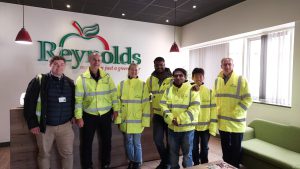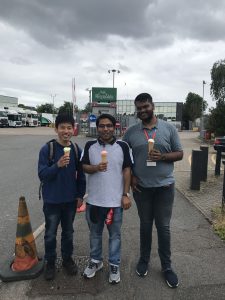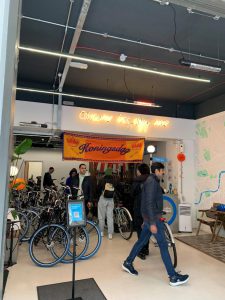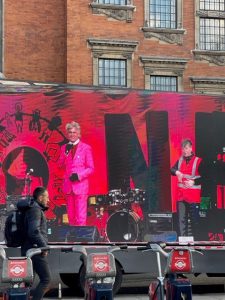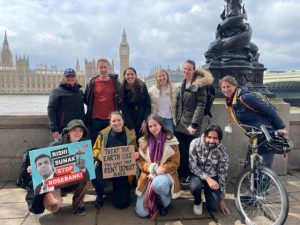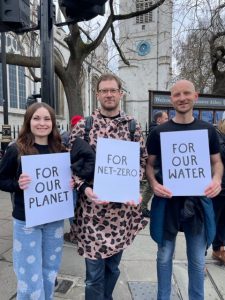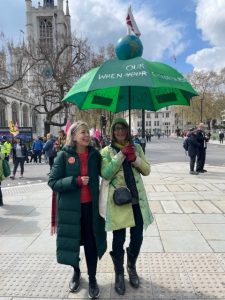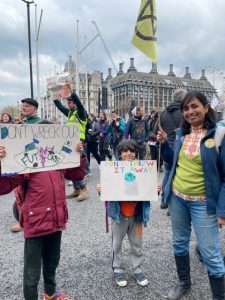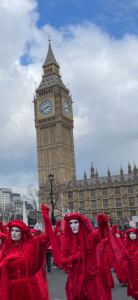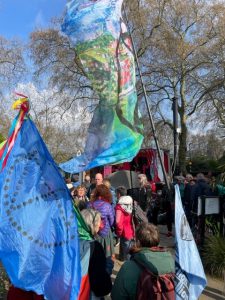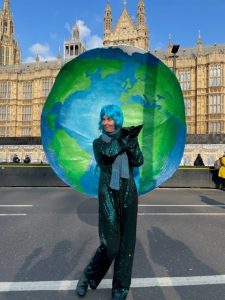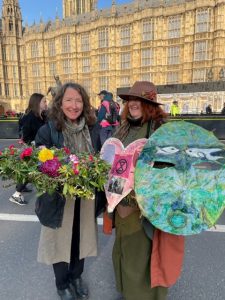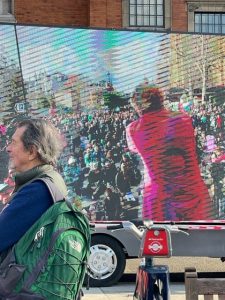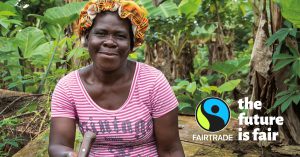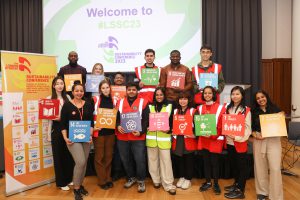We would like to invite you to the King’s Climate Action Network and the re-launch event next week, as we want to hear from you. If you’re interested, you can register here.
Below you can find out more about the King’s CAN plans for 2023-24, details about our upcoming re-launch event and various initiatives you can get involved in.
What is the King’s CAN? And updates
The King’s CAN is an inclusive and collaborative space that aims to foster groundbreaking ideas to address the climate and sustainability crises. We harness the passion and diversity of our interdisciplinary community, consisting of students, staff and alumni, to co-create innovative solutions with a meaningful impact within King’s and beyond.
Originally established in October 2020 to co-create the King’s Climate & Sustainability Action Plan, the CAN has since made significant progress. Last year, we focused on implementing five key projects (you can read more about them in the 2022-23 sustainability report). With the publication of the King’s Climate & Sustainability Action Plan (CSAP) and the establishment of governance structures, including a Steering Group and an annual CSAP review process, our focus is now on the entire King’s community having a direct say in the plans being developed. We invite your feedback, ideas and, hopefully, your energy to turn these ideas into action, including continuing with last year’s projects.
The network includes:
- Community-building: We hold termly CAN plenaries to unite the network in person, building an engaged climate community while celebrating and reviewing the progress of the CSAP.
- Focused brainstorms: Throughout the year we concentrate on specific CSAP areas, generating fresh ideas and sparking discussions.
- Consultations: The CAN plays a crucial role in the annual CSAP review process, providing feedback and helping set priorities. Beyond planned consultations, it serves as a platform for ongoing dialogue, connecting community voices with key decisions.
- Funding for projects: The Sustainability Projects Fund allows CAN members to turn their ideas into action, and we plan to set this up in term 2.
- Vibrant hub: The CAN Teams channel serves as a connected community where members share relevant opportunities, events and resources.
- Events to empower: Throughout the year, CAN members have access to a range of events and training sessions to enhance their knowledge, including the Sustainability Seminar Series and King’s Climate & Sustainability Month.
King’s CAN re-launch: 18 October (2-4pm, MB2.1)
Mark your calendars! You will soon receive an invitation to our King’s CAN re-launch event, which is scheduled for October 18th from 2:00 PM to 4:00 PM at Macadam Building MB2.1 (Strand Campus). During this event, we will outline our plans for the King’s CAN this year, initiate brainstorming sessions for fresh ideas and provide an opportunity to connect with fellow CAN members. Refreshments and snacks will be provided.
If you are unable to attend the event, we will follow up via email with a summary of the discussions and provide slides with more detailed plans.
Get involved
Here are some ways you can engage beyond the King’s CAN:
- Take the KEATS Sustainability & Climate module: This online module covers a range of sustainability topics, from climate change to sustainable finance and social justice. Enroll to gain valuable knowledge and work towards a King’s Experience Champion for Change Award upon module completion. Enrol here.
- Read King’s Climate & Sustainability Action Plan: Familiarise yourself with our comprehensive plan, which sets ambitious targets across 13 key impact areas.
- Read our annual environmental sustainability reports: These reports highlight the collective efforts of the King’s community in making our university more sustainable.
- Find out more ways to get involved here.
To stay up to date about all things climate- and sustainability-related going on at King’s, you can also subscribe to our newsletter and follow us on Instagram and Twitter.

